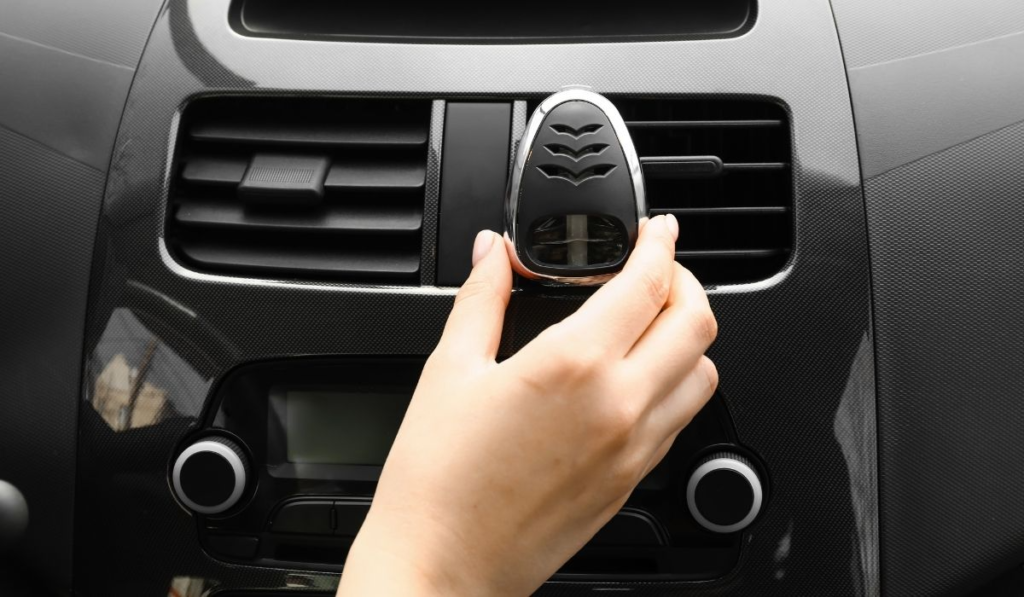7 Brilliant Car Engine Bay Cleaning Tips at Home – Clean Like a Pro

Introduction
Table of Contents
ToggleThe engine bay of your car is like its heart; it keeps everything functioning properly. But it gathers oil, filth, and grime with time. In addition to improving longevity and performance, keeping the engine bay clean looks great.
With this detailed guidance, we’ll walk you through the process of deep car engine bay cleaning at your home, just like a pro.
Preparing for Cleaning
Before diving into the cleaning process, it’s essential to take some preliminary steps to ensure safety and efficiency.
Safety Precautions:
To start, disconnect the battery from the car to avoid any electrical accidents. To prevent burns, let the engine cool completely as well.
Gathering Supplies:
Make sure you have the necessary equipment and supplies, such as a spray-nozzle-equipped hose or pressure washer, an engine cleaner or degreaser, a few brushes, and microfiber cloths.
Supplies You’ll Need
Before diving into the cleaning process, gather the following supplies:
- Microfiber towels
- Disposable gloves
- Synthetic brushes (or an old toothbrush)
- Cleaning wipes
- Soapy water
- Pipe cleaners
- Vacuum cleaner
- Trim restorer
Step-by-Step Guide For Car Engine Bay Cleaning
Safety First:
Before beginning, make sure your engine is cold. Gloves and safety eyewear are advised.

Eliminate Debris:
Use a brush, gloves, or your hands to remove larger dirt particles, leaves, and twigs. Take out the debris from the engine instead of pushing it down farther.

All-Purpose Spray Cleaner:
Use an all-purpose cleaner on the outside of the engine bay, including the hood. Let it calm down for a few minutes.

Agitate with Brushes:
Use synthetic or old toothbrushes to create agitation in the engine compartment. Pay attention to cracks and hard-to-reach areas.

Rinse Well:
Using a pressure washer at a safe distance, completely clean the engine bay. To avoid damage, stay away from high-pressure settings.

Inspect and Spot-Clean:
Examine the engine bay after cleaning it. Spot-clean any areas that still require extra care or stubborn regions.

Dry and Restore Trim:
Use microfiber towels to dry the engine bay. Apply trim restorer to rejuvenate faded plastic and rubber components.

Maintenance Tips
To prolong the cleanliness and functionality of your engine bay, consider implementing these maintenance practices:
Regular Inspections:
Plan recurring checks to find any newly developed buildup areas or possible problems.
Spot Cleaning:
Take care of minor spills or stains as soon as they arise to prevent making cleanup more challenging afterward.
Protective Coatings:
Consider applying a ceramic coating or specialist sealant to protect surfaces from dirt, grime, and environmental toxins.
Tips and Precautions
Avoid High-Pressure Water:
Water under high pressure might harm delicate parts. Remain with low-pressure washing.
Protect Electrical Connections:
Before cleaning, place plastic bags over delicate electrical parts or cover them in plastic wrap.
Avoid Engine Degreasers on Hot Engines:
Use degreasers only after the engine has cooled.
Conclusion
You can ensure optimal performance from your car and an incredibly clean engine bay by following these recommendations. Remember to keep this cleanliness clean regularly to guarantee that your engine continues to operate correctly for many years to come! Plus for more tips for cleaning your car interior in a budget friendly manner you can check out these DIY car interior cleaning hacks at home.
FAQs
Which degreaser works best for car engine bay cleaning?
A lot of degreasers are on the market, but be sure the one you choose is made especially for use in cars and balances safety and efficacy for your engine’s parts.
How often should my car engine bay be cleaned?
Depending on driving circumstances and external influences, try to clean your engine bay at least once every six months.
Can I clean my car engine bay with a pressure washer?
Sure, but proceed cautiously and keep your spray away from delicate parts like air intake systems and electrical connections.
Is it the car engine bay cleaning safe when it is hot?
To prevent burns and other safety risks, you should always wait until the engine has completely cooled down before starting the cleaning procedure.
Recent Posts
Recent Comments

Top 10 Best Car Odor Eliminators to Freshen Up Your Ride

Professional Car Detailing vs DIY Car Detailing: Pros & Cons

Ultimate Guide to Car Wheel Cleaning for a Gleaming Ride

An Ultimate Guide to Car Cleaning: Tips, Tricks, and Products - 2024

Top 10 Best Car Odor Eliminators to Freshen Up Your Ride

Professional Car Detailing vs DIY Car Detailing: Pros & Cons

8 DIY Car Wash Solution Recipes for a Spotless Shine

